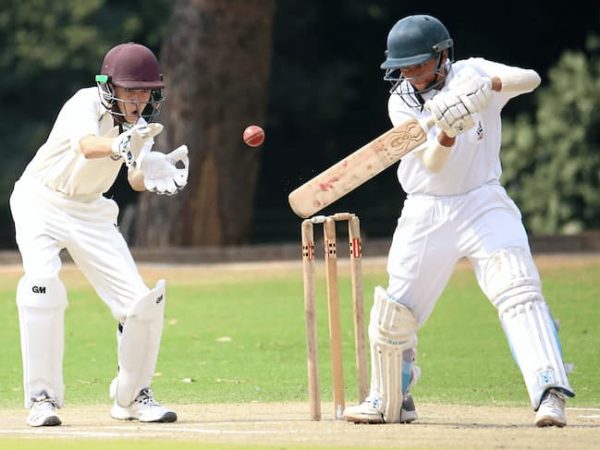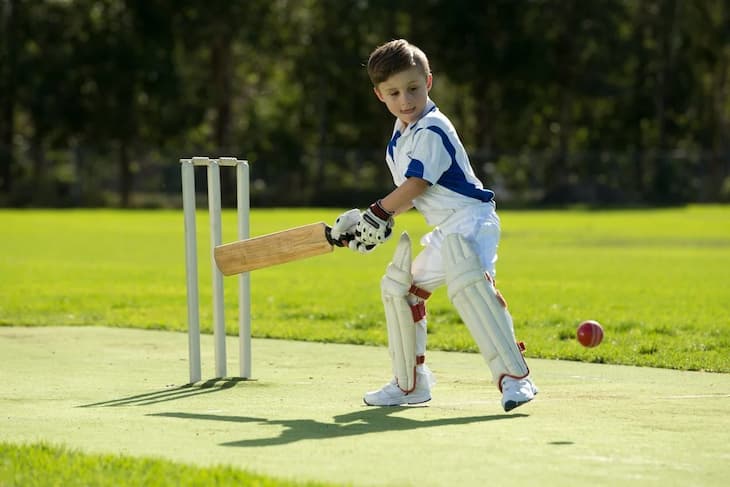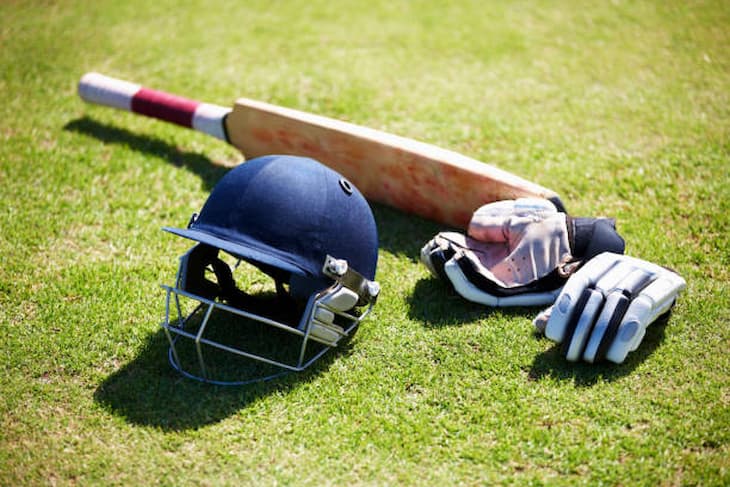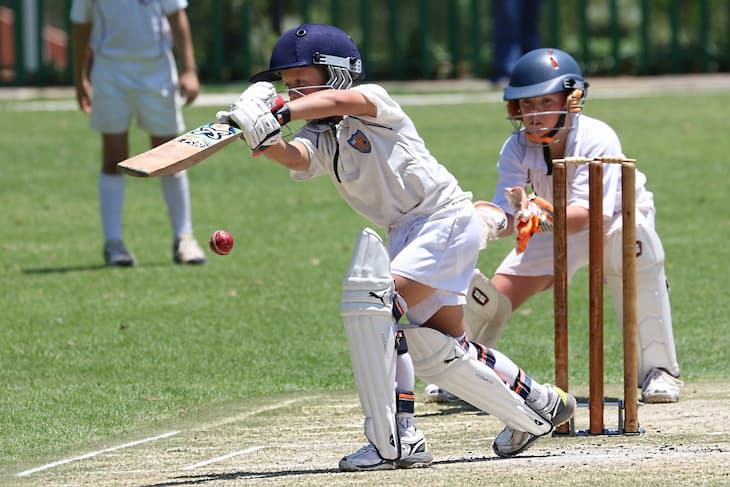09
Oct

The journey of becoming an accomplished cricket player often begins at a young age. Cricket excellence doesn’t happen overnight; it requires dedication, consistent effort, and a genuine love for the sport.
If you’re a young and aspiring player eager to improve your skills, then you’ve come to the right place. This guide will provide you with invaluable insights to help you achieve great success. From selecting the right bat to learning from the greats, the tips you’ll find below will motivate you, boost your performance on the field, and assist you in shaping a promising future.

The most important part of your cricket equipment, is, of course, the bat. Selecting the right cricket bat is a crucial decision for young players, and it’s all about finding the perfect match between you and your equipment. As you transition from junior to youth cricket, your choice of bat becomes paramount in shaping your cricketing future.
Your first consideration should be the bat size that suits you best. A youth bat comes in various sizes, ranging from size 1 to size 6, with options like Harrow size bat and Full size for older youth players. It’s essential to assess your height, physical strength, and playing style, as this will determine the appropriate size. Consulting with coaches or more experienced players can provide valuable insights and help you find the right youth bat for you.
Once you’ve determined the size, the type of wood used in the bat should become your next focal point. English willow and Kashmir willow are common materials, with English willow being the preferred choice due to its lighter weight and greater power potential. You need to evaluate how different woods feel when you handle them to make an informed decision that suits your batting style.
Remember, your cricket bat isn’t just a piece of equipment; it’s an extension of yourself on the field. It should feel comfortable, balanced, and tailored to your preferences. Your youth bat should enhance your playing experience, provide you with confidence, and enable you to develop your techniques effectively.
Take your time exploring various options and seeking guidance from coaches or experienced players to ensure that the bat you choose complements your strengths and preferences. With the right cricket bat in your hands, you can lay a solid foundation for success and growth in the sport as you continue your journey towards cricket excellence.
For young cricket players, mastering the fundamentals is the cornerstone of a successful cricketing journey. Doing so will help you build the skills and confidence you need to excel in the sport and embrace more advanced aspects as you progress in your cricketing adventure.
To achieve this, dedicate sufficient time to perfect your batting, bowling, and fielding techniques. Focus on your footwork, grip, and body alignment. Consistent practice is key, so consider investing your time in the nets and engaging in friendly matches to apply what you’ve learned. It’s also beneficial to seek guidance from experienced coaches who can provide valuable feedback.
As a young cricket player, maintaining fitness and agility is crucial. You can do this by incorporating regular workouts into your routine, focusing on cardio, strength, and flexibility exercises. Cardiovascular fitness enhances endurance for long innings, while strength training supports powerful strokes and effective bowling. Agility drills improve fielding and reflexes. Make sure to prioritise proper nutrition and hydration as they are equally important.
Staying fit not only boosts your physical performance but also reduces the risk of injuries. Moreover, it enhances mental focus, sharpness, and overall cricketing prowess. Prioritise your fitness regimen alongside cricket practice to ensure you’re at your best on the field, match after match.

Mental toughness is extremely important as it can help you stay strong under pressure and handle setbacks and tough situations on the field. Bad situations are inevitable and being somewhat prepared can assist you in overcoming them.
You can develop mental toughness by practising mindfulness, staying positive, and seeing challenges as chances to learn. Believe in yourself and stay focused on your goals. Having supportive coaches, teammates, and mentors can help you stay mentally tough.
Quality coaching, especially from a young age, is the backbone of a successful cricketing journey. Coaches provide valuable guidance, helping you refine your skills and techniques correctly from the start. They offer insights into game strategies and foster a deeper understanding of cricket’s nuances. Early exposure to quality coaching helps build a strong foundation, which is crucial for long-term development.
To find quality cricket coaching, start by researching local clubs and reaching out to your cricket association for recommendations. Seek input from players, friends, and parents. You can also use online resources and visit facilities to gather information. And before you select a coach, ensure they are qualified by asking for references.
Participating in competitive matches is essential for your growth as an aspiring cricketer. It provides a real-world platform to apply the skills you’ve learned and develop composure under pressure. Competitive matches improve your decision-making, teamwork, and adaptability, all of which are crucial for your success.
To get involved, join local cricket clubs, school teams, or youth leagues. Regularly facing opponents of varying skill levels challenges you to elevate your game continually. It’s where your theoretical knowledge meets practical experience, helping you hone your skills and build confidence for your rewarding cricket journey.
As a young and aspiring cricket player, gaining inspiration and insights from cricketing legends can be invaluable. Begin by watching their matches and studying their techniques closely. Moreover, analyse their decision-making, positioning, and strategies. Read biographies, watch interviews, and follow their career journeys to understand their mindset and dedication. If possible, attend coaching sessions or camps conducted by former cricketers.
Additionally, you can seek opportunities to meet and learn from local cricketing heroes. By immersing yourself in the wisdom of the greats, you can refine your own game and gain a deeper appreciation for the sport.

The ideal age to start playing cricket can vary depending on individual interests and physical development. Many children begin learning the basics of cricket around the age of 7 to 8, participating in junior programs and school teams.
However, there’s no strict age limit, and cricket can be enjoyed at any age. For more competitive and organised formats, like youth leagues, children often start around 11 to 12. While starting young can be beneficial, it’s equally important to ensure that the training and competition are age-appropriate, considering the physical and mental readiness of the child.